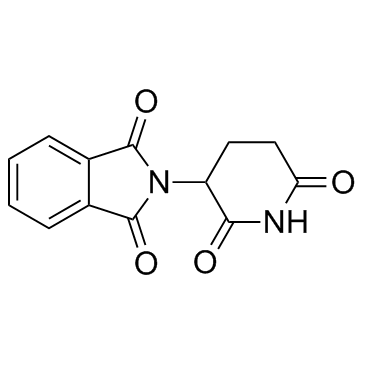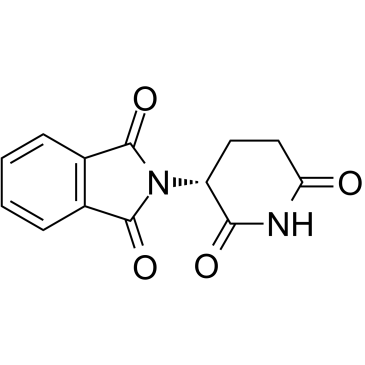| Structure | Name/CAS No. | Articles |
|---|---|---|
 |
Thalidomide
CAS:50-35-1 |
|
 |
(S)-Thalidomide
CAS:841-67-8 |
|
 |
(R)-(+)-Thalidomide
CAS:2614-06-4 |